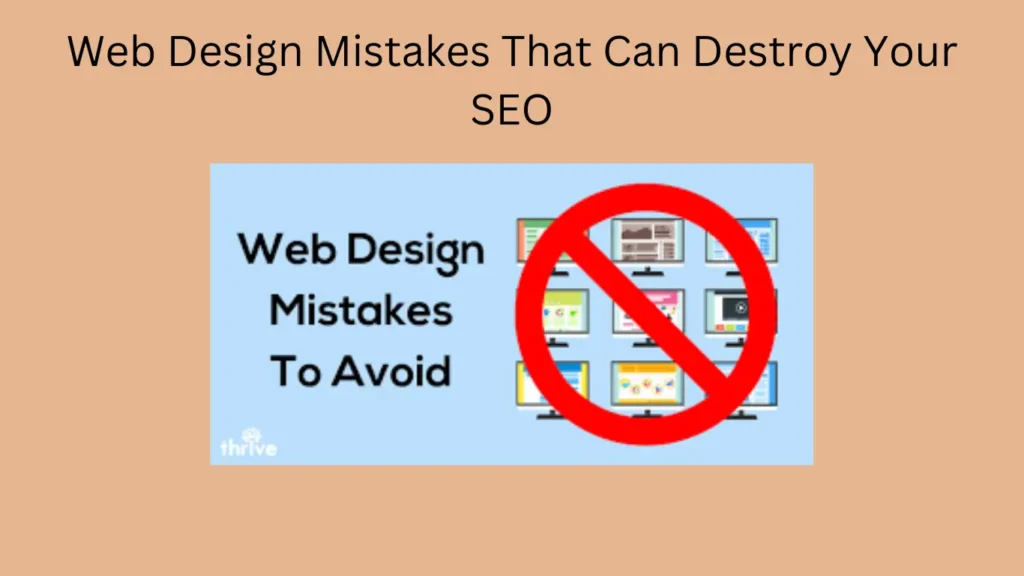Your website’s design plays a crucial role in your SEO efforts. Avoiding common web design mistakes is essential to ensure your site ranks well in search engine results. Here are some mistakes to avoid:
1. Lack of Mobile Responsiveness
- Problem: Not having a mobile-responsive design can lead to a poor user experience on mobile devices, affecting your search engine rankings.
- Solution: Use responsive design techniques to ensure your website looks and functions well on all devices.
2. Slow Page Loading Speed
- Problem: Slow-loading pages can increase bounce rates and reduce search engine rankings.
- Solution: Optimize your website’s performance by reducing image sizes, minifying CSS and JavaScript files, and using caching.
3. Poorly Structured URLs
- Problem: URLs that are long, complex, or not descriptive can make it difficult for search engines to understand your site’s content.
- Solution: Use short, descriptive URLs that include relevant keywords to improve SEO.
4. Non-SEO Friendly Content Management Systems (CMS)
- Problem: Some CMS platforms generate URLs and code that are not SEO-friendly, leading to indexing issues and poor rankings.
- Solution: Choose a CMS that allows for customizable URLs, meta tags, and other SEO elements.
5. Lack of Proper Heading Tags
- Problem: Not using heading tags (H1, H2, etc.) properly can make it harder for search engines to understand the structure and hierarchy of your content.
- Solution: Use heading tags to organize your content logically and include relevant keywords where appropriate.
6. Overuse of Flash or JavaScript
- Problem: Search engines have difficulty crawling and indexing content that is embedded in Flash or JavaScript.
- Solution: Use HTML5 and CSS3 for animations and effects instead of Flash, and ensure that important content is accessible without JavaScript.
7. Lack of Image Optimization
- Problem: Large, unoptimized images can slow down your site and impact your SEO.
- Solution: Optimize images by reducing file sizes, using descriptive filenames, and adding alt text.
Conclusion
By avoiding these common web design mistakes, you can improve your website’s SEO performance and ensure that it ranks well in search engine results. Focus on creating a user-friendly, mobile-responsive design with fast loading times and optimized content to enhance your SEO efforts.
For further Inquires Contact Us
FAQs
Q: How does mobile responsiveness affect SEO?
- A: Mobile responsiveness is crucial for SEO as Google prioritizes mobile-friendly websites in search results, leading to better rankings.
Q: Why is page loading speed important for SEO?
- A: Page loading speed affects user experience and bounce rates, which are factors Google considers for ranking websites.
Q: Can URL structure impact SEO?
- A: Yes, a clear and descriptive URL structure can improve SEO by helping search engines understand the content of your pages.
Q: Are heading tags important for SEO?
- A: Yes, heading tags (H1, H2, etc.) help search engines understand the structure of your content and can improve SEO when used correctly.
Q: How does image optimization affect SEO?
- A: Optimizing images can improve page loading speed, user experience, and SEO by making your website more accessible and efficient.

